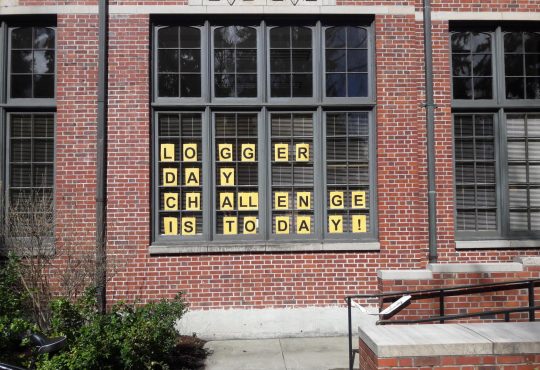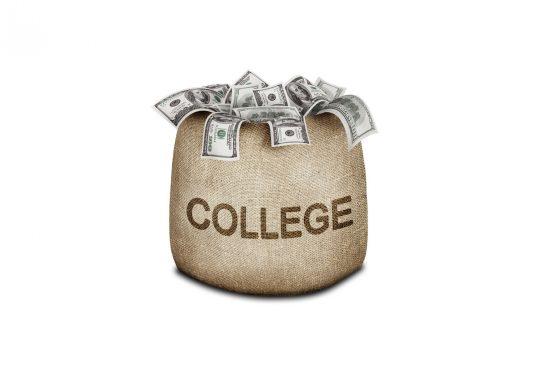
While college in America is infamously expensive, many don’t realize that the cost of college is paid long before they step onto campus.
Before you’ve started your freshman year, before you’ve had a tour of campus, before you even know where you’ll be attending, you begin to give them money in the form of application fees.
Application fees can be set anywhere between $10 and $150 depending on the school, and through this cost alone colleges generate hundreds of thousands, sometimes millions, of dollars off soon-to-be high school graduates. When under the stress of applying for schools, it can be easy to send in the money and not ask questions. High school seniors are busy with finishing up their school year while applying to these universities, and thus are more concerned with paying for and completing applications than diving into the machinations of them.
Under this American blanket of thick and all-consuming capitalism, the answer to “Why does [insert thing] cost money?” is usually just “Because it does,” but the revenue made by college application fees has an actual answer. The thousands of dollars made every year have two purposes for schools: paying professionals to read the applications, and keeping students from applying to as many schools as they please. Both of these explanations can be found on several college prep FAQ pages.
In effect, high school families are being drained for money from schools they may not even know or want to attend, just for a slim chance of admittance and an incentive to not go anywhere else. The higher the fee, the more likely a student, particularly low-income students, will apply to less schools. And so application fees, like many other administrative and logistical facets of college life, are a money-driven mechanism with no sympathy for the education of worthy prospective students.
How does this apply to Puget Sound? In the 2016-2017 school year, our university made $319,900 off of application fees alone, from a total of 6,398 applicants paying $50 each. According to a study done by Mike Brown from LendEDU, that places us at 353 out of the 500 colleges that make the most revenue off of total applications. At first glance, that may seem unimportant, but within the context of a total of 5,300 institutions for higher education in the nation, Puget Sound’s figures begin to look more sinister.
Our school places 452 out of 500 for schools making the most money off declined applicants purely from the application fee. In 2016–2017, out of 6,398 applicants, 5,048 were admitted. The remaining 1,350 declined applicants made $67,500 in revenue for the school, which right now could cover the cost of one year’s tuition with a little to spare (yikes).
For comparison, the number one spot on both of the aforementioned lists in the study is held by University of California, Los Angeles (UCLA). In 2016–2017, UCLA saw 97,112 applicants and admitted 17,473 of them. At $70 per application, that’s $5,574,730 in revenue made off declined applicants, and $6,797,840 made in total.
All these big figures are just more proof of how commercialized higher education has become. Not only is the concept of the application fee in place to serve the colleges and keep application numbers low (reducing the work for colleges), but the fee itself also serves a function just as intentional: keeping poor students away from schools like Stanford and Harvard by intimidation alone. Yes, there are ways to waive some fees and many schools can be reasonable, but the fact that the cost stands so high sends a classist message to students of low income. Students will be inclined to think applying for schools is a waste of money, or will have to budget which schools they can apply to in the first place.
Puget Sound should be ashamed for upholding the cutthroat capitalist message of application fees, and for being complicit in the literal gatekeeping that they accomplish. While simply abolishing or reducing the application fee may not be an option, universities that claim to be dedicated to fair and equitable higher learning should practice what they preach and do a better job of keeping their campus accessible to all.





